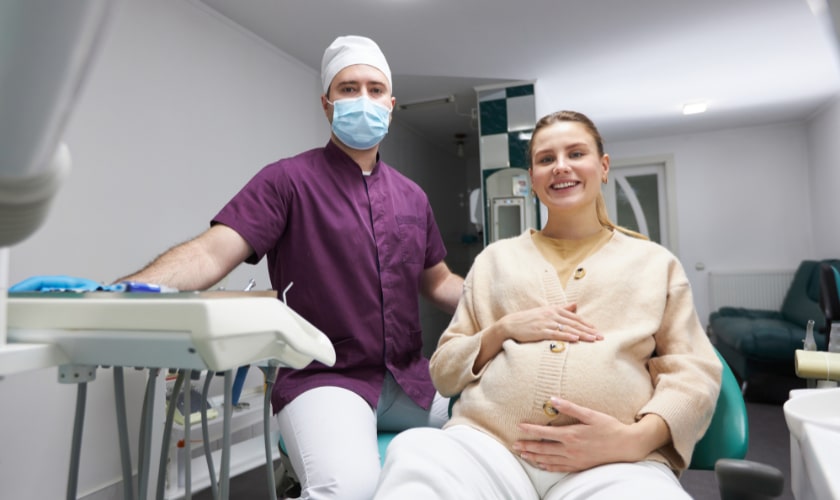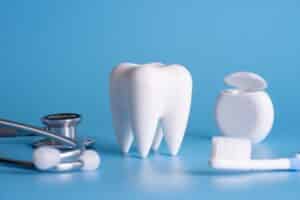Are you a pregnant woman who is anxious about the safety of dental sedation? You’re not alone! There are many myths surrounding this topic, and it can be hard to know what to believe. In this blog post, we will dispel those myths and provide you with the truth about dental sedation safety for pregnant women. Keep reading to learn more about how you can safely receive dental care during pregnancy without putting yourself or your baby at risk.
When it comes to dental care, pregnant women are often left with more questions than answers. With so many conflicting opinions out there, it’s hard to know who to trust. That’s why we’re here to set the record straight about dental sedation safety for pregnant women.
We know that some people may be hesitant to seek dental care during pregnancy because of concerns about the safety of sedation drugs. But the truth is, when used correctly, dental sedation is perfectly safe for both mother and child. Here’s what you need to know about the different types of dental sedation available and how they can benefit pregnant women.
Types of Dental Sedation
There are several types of dental sedation that can be used for pregnant women, and each has its own risks and benefits. The most common type of dental sedation is local anesthesia, which numbs the area around the tooth that is being worked on. This type of sedation is generally considered safe for pregnant women, as it does not enter the bloodstream and therefore poses no risk to the developing fetus.
The next most common type of dental sedation is nitrous oxide or laughing gas. Nitrous oxide is inhaled through a mask and helps to relax the patient while still allowing them to remain awake and aware. Although nitrous oxide is considered safe for pregnant women, there is a small risk that it could cause drowsiness or dizziness, so it is important to be sure that you are able to sit up and remain alert during your procedure.
The last type of dental sedation that will be discussed is general anesthesia. General anesthesia puts the patient into a deep sleep and is generally only used for more invasive procedures such as extractions or root canals. Although general anesthesia carries a higher risk than other types of sedation, it may be necessary in some cases where the mother-to-be has a high level of anxiety or if the procedure is particularly complex. As with any type of anesthesia, there is always a small risk of complications, so it is important to discuss the risks and benefits with your dentist before deciding whether or not this type of sedation
Risks and Benefits of Dental Sedation for Pregnant Women
It is a common misconception that dental sedation is unsafe for pregnant women. However, this is not the case. Dental sedation is actually a very safe and effective way to help pregnant women manage their dental anxiety and fears.
There are two main types of dental sedation: oral sedation and nitrous oxide (laughing gas) sedation. Both types of sedation are safe for pregnant women and have been used successfully for many years.
Oral sedation involves taking a pill before your appointment. Nitrous oxide sedation involves inhaling a gas through a mask during your appointment. This will also help you to feel relaxed and calm during your treatment.
Both types of sedation are extremely safe for both mother and baby. There are no known risks or side effects associated with either type of dental sedation for pregnant women. In fact, dental Sedation is often recommended by OB/GYNs as a way to help reduce stress levels during pregnancy.
Dental Sedation can be an extremely effective way to help pregnant women relax during their dental appointments. If you are pregnant and have been avoiding the dentist due to anxiety or fear, we encourage you to speak with your doctor or dentist about the possibility of using dental Sedation during your next appointment.
Guidelines for Safe Use of Dental Sedation During Pregnancy
There are a few things to keep in mind when considering dental sedation during pregnancy:
First and foremost, always consult with your obstetrician or primary care provider before scheduling any type of dental procedure, including sedation.
Make sure the dental office is aware of your pregnancy, as some types of sedation may not be recommended.
Be sure to follow all pre-operative and post-operative instructions from your dentist or oral surgeon.
That being said, there are many myths surrounding the safety of dental sedation for pregnant women. Let’s dispel some of those myths:
Dental x-rays are safe during pregnancy. In fact, they are often necessary to properly diagnose and treat conditions that can arise during pregnancy. The American College of Radiology recommends that pregnant women only undergo essential x-rays.
Local anesthesia is also safe for pregnant women. This type of anesthesia numbs the area around the teeth being worked on so that you will not feel any pain.
Nitrous oxide (laughing gas) is a very popular form of dental sedation and it is perfectly safe for use during pregnancy. Inhaling nitrous oxide does not pose any risk to either you or your baby.
IV sedation is another option for dental procedures during pregnancy. While this type of sedation carries a slightly higher risk than other types, it is still considered safe when administered by a qualified professional.
What to Expect Before, During, and After the Procedure
It’s common for pregnant women to experience anxiety about dental procedures, especially if they have never had dental sedation before. However, there’s no need to worry! Dental sedation is safe for pregnant women and can even help to make the procedure more comfortable. Here’s what you can expect before, during, and after your procedure:
Before the Procedure:
You will need to talk to your dentist or oral surgeon about your medical history and any medications you are currently taking. It’s important to let them know if you are pregnant or think you might be, as this could affect the type of sedation used. You may also be asked to sign a consent form.
During the Procedure:
You will be given a sedative either through an IV or in pill form. The type of sedation used will depend on how long the procedure is expected to take and your overall health. You will remain awake during the procedure, but you may not remember much afterward. The dentist or surgeon will monitor your vital signs throughout the procedure.
After the Procedure:
You will need someone else to drive you home after the procedure since the effects of the sedative can last for several hours. You should avoid drinking alcohol or operating heavy machinery for 24 hours after the procedure. You may also experience some side effects like dizziness, nausea, or vomiting. These should resolve within a few hours.
Alternatives to Sedation Dentistry During Pregnancy
There are a few alternatives to dental sedation during pregnancy that can be just as effective in helping you relax and feel comfortable during your appointment. One option is to ask your dentist about using nitrous oxide, also known as laughing gas. This gas is inhaled through a small mask placed over your nose and helps to calm nerves and ease anxiety. It is perfectly safe for both mother and baby and will wear off quickly after your procedure is complete.
Another option is to try relaxation techniques such as deep breathing or visualization prior to your appointment. Listening to calming music or reading positive affirmations can also help you feel more relaxed and at ease. If you have a fear of needles, let your dentist know so they can take extra care to ensure you’re comfortable during the injection process. And lastly, be sure to communicate any concerns or fears you have with your dentist beforehand so they can help put your mind at ease and make your experience as positive as possible.
Conclusion
This article has explored the myths and misconceptions surrounding dental sedation safety for pregnant women. We have seen that pregnant women are safe to undergo dental sedation, but they must consult with their doctor beforehand. It is important to talk openly and honestly with your dentist about any potential risks associated with being in a state of conscious sedation during pregnancy so you can ensure your safety as well as that of your unborn child. With the right guidance, you can make sure that any dental care you receive during this time is done safely and without worry.
FAQs
Dental sedation is generally safest during the second trimester of pregnancy, but it can be performed in other trimesters if necessary. Your obstetrician and dentist will need to evaluate your individual situation and determine the best timing for any dental procedures that involve sedation.
Nitrous oxide (laughing gas) and local anesthesia are generally considered safe for pregnant women. However, general anesthesia and other forms of sedation may carry higher risks and should be avoided if possible. Your dentist or anesthesiologist can discuss the different options with you and help determine the best approach for your situation.
Yes, dental sedation can be safe for pregnant women when it is administered properly by a qualified dentist or anesthesiologist. However, it is important to consider the risks and benefits of sedation on a case-by-case basis and to consult with your obstetrician before undergoing any dental procedures during pregnancy.





